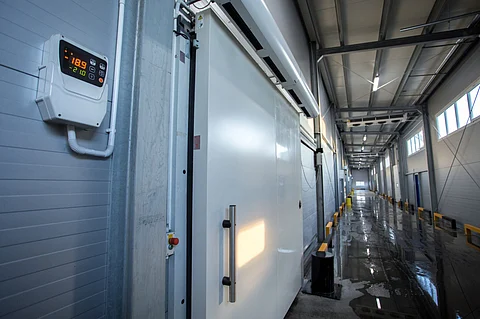

The first consequences of the prohibitions that China and Hong Kong imposed on Japanese seafood from the prefectures near the Fukushima accident are starting to be seen.
Now, as reported by The Japan Times, scallops and other seafood products from Hokkaido prefecture, which were supposed to be sent to China, are piling up in freezers with nowhere else to go. This results in higher costs, as it involves electricity and transportation expenses to other facilities and appears to have no current market outlet, highlights the government report.
In concrete numbers, as reported by The Japan Times, Chinese customs data showed that seafood imports from Japan fell by 67.6% compared to the previous year in August. This represents a significant drop for the top importer of Japanese products.
The damage has started in Hokkaido, but this is just one of the affected prefectures with restrictions. In this prefecture, which is one of the hardest-hit, seafood products exported to mainland China accounted for about 64% of the prefecture's maritime product exports, amounting to around 83.3 billion yen last year, according to the prefecture's government.
The media newspaper talked with the seafood processing company Maru Uroko Sanwa Suisan, located in Monbetsu. This company supplied 20% of the scallops it processed to companies that exported them to China last year.
With the need for changes, new approaches have emerged in the company. As they mentioned to the media, products destined for China may be left unpeeled; however, not all markets have the same preferences. Now that the company is seeking other markets, some prefer peeled products. These small details, however, come with additional processing costs.
"There are many production processes, such as peeling, cleaning, freezing, sorting, packaging, etc., that require time and labor," said the company's president, Kazuya Yamazaki. "That's the problem. And if there's a ban on Chinese imports like this, the market price will end up dropping a bit," he added.
According to Yamazaki, the company has an excess inventory of scallops due to falling prices, and its customers are waiting for prices to stabilize and a government subsidy to take effect before making purchases.
This ban goes beyond what one might initially think because even products that use a small amount of seafood are affected.
In specific numbers, around 70% of shipments of seasonings destined for China containing scallops as an ingredient have been canceled, according to the Hokkaido report.
Meanwhile, trade groups have said that while they are looking for buyers outside of China, companies in Western countries have tried to negotiate lower prices, according to the report. Additionally, if the ban on seafood products continues, more funds will be needed to reprocess or repackage seafood products for new buyers.
Agriculture and Fisheries Minister Ichiro Miyashita, who visited Hokkaido on Sunday, said on Tuesday that he will assist companies by drafting a package of policy measures, including efforts to expand domestic consumption of scallops, seek new export markets, and provide financial assistance.
However, as reported by The Japan Times, Yamazaki explained that these actions are too slow, imprecise, and ineffective. "They should have done something a bit more proactive from the beginning," he said to the media.
